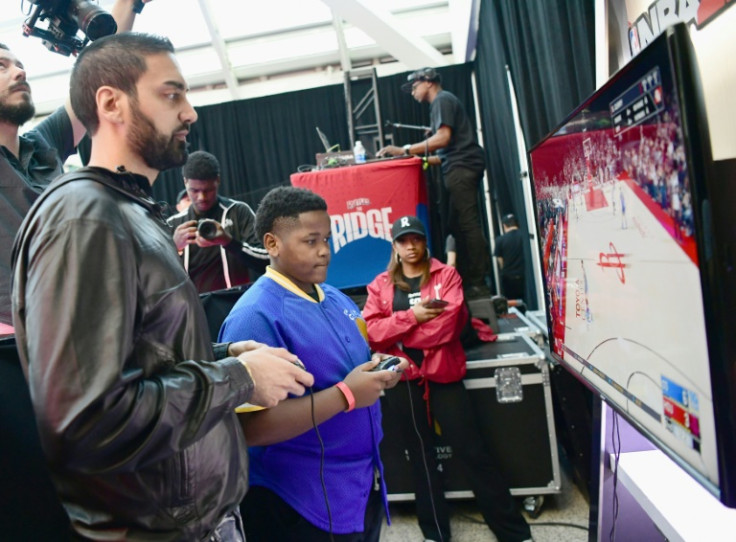
Making friends, learning to deal with situations and solving problems but sometimes losing sleep. That is a brief summary of a Pew Research Center survey on the video gaming habits of U.S. teens.
Although most of the study focused on findings for the population as a whole, there are also some key takeaways regarding the particular experiences of Latinos, who were more likely to report making friends online and taking advantage of gaming to develop skills.
Looking at general findings, the report shows that a vast majority of U.S. teens (85%) report playing video games with over four in ten identifying as gamers.
Almost three in four (72%) said a reason for playing is spending time with others, and 47% claim to have made a friend in the process. Latinos, in fact, were more likely to say so, with 53% of all respondents from this ethnicity. The figure compared to 55% of Blacks and 43% of Whites.
Experiences, however, differ by gender. Boys who play are more likely to report positive experiences like making friends, but also negative ones such as harassment. Overall, many more boys than girls play video games. 97% say they play, compared to three quarter of girls. Moreover, 61% and 17% say they play every day, respectively.
Looking at devices used, most teens play on gaming consoles or smartphones. "When asked about five devices, most teens report playing video games on a gaming console (73%), such as PlayStation, Switch or Xbox. And 70% do so on a smartphone," the report reads, adding that almost half play on a desktop or laptop computer. Fewer do so on a tablet (33%) or a virtual reality headset (24%).
Teens tend to engage with others through online platforms, mainly Discord and Twitch. 44% of gamers say they use Discord, compared to 28% of all respondents. Moreover, 30% of gamers use Twitch, compared to 17% overall.
Most teens say they spend a healthy amount of time playing. Only 14% said they spend too much, compared to 58% who claim to play the right amount and 13% who believe they play too little. In this case, Latinos are the demographic with the most respondents saying they play too little, with 18%. This compares to 17% of Blacks and 8% of White teens.
"Fewer than half of teens have reduced how much they play video games. About four-in-ten (38%) say they have ever chosen to cut back on the amount of time they spend playing them. A majority (61%) report that they have not cut back at all," the survey adds.
Most respondents report playing videogames have had a positive impact in their lives. Over half said it helped them with their problem-solving skills and 47% reported making a friend. Moreover, 41% said it improved their ability to work with others and almost one in three saw positive impacts on their mental health. The other side of the coin is the 17% who said it hurt their school performance and 41% saying they're not getting as much sleep as they should.
Regarding bullying, the survey found that "name-calling is a relatively common feature of video game life – especially for boys." "Roughly four-in-ten teen video game players (43%) say they have been harassed or bullied while playing a video game in one of three ways: being called an offensive name (41%), being physically threatened (12%) or sent unwanted sexually explicit content (8%)." Figures varied slightly depending on the gender.
Overall, eight in ten U.S. teens say that bullying is a problem for people their age when it comes to gaming. Almost 30% said it's a major problem.
© 2025 Latin Times. All rights reserved. Do not reproduce without permission.





